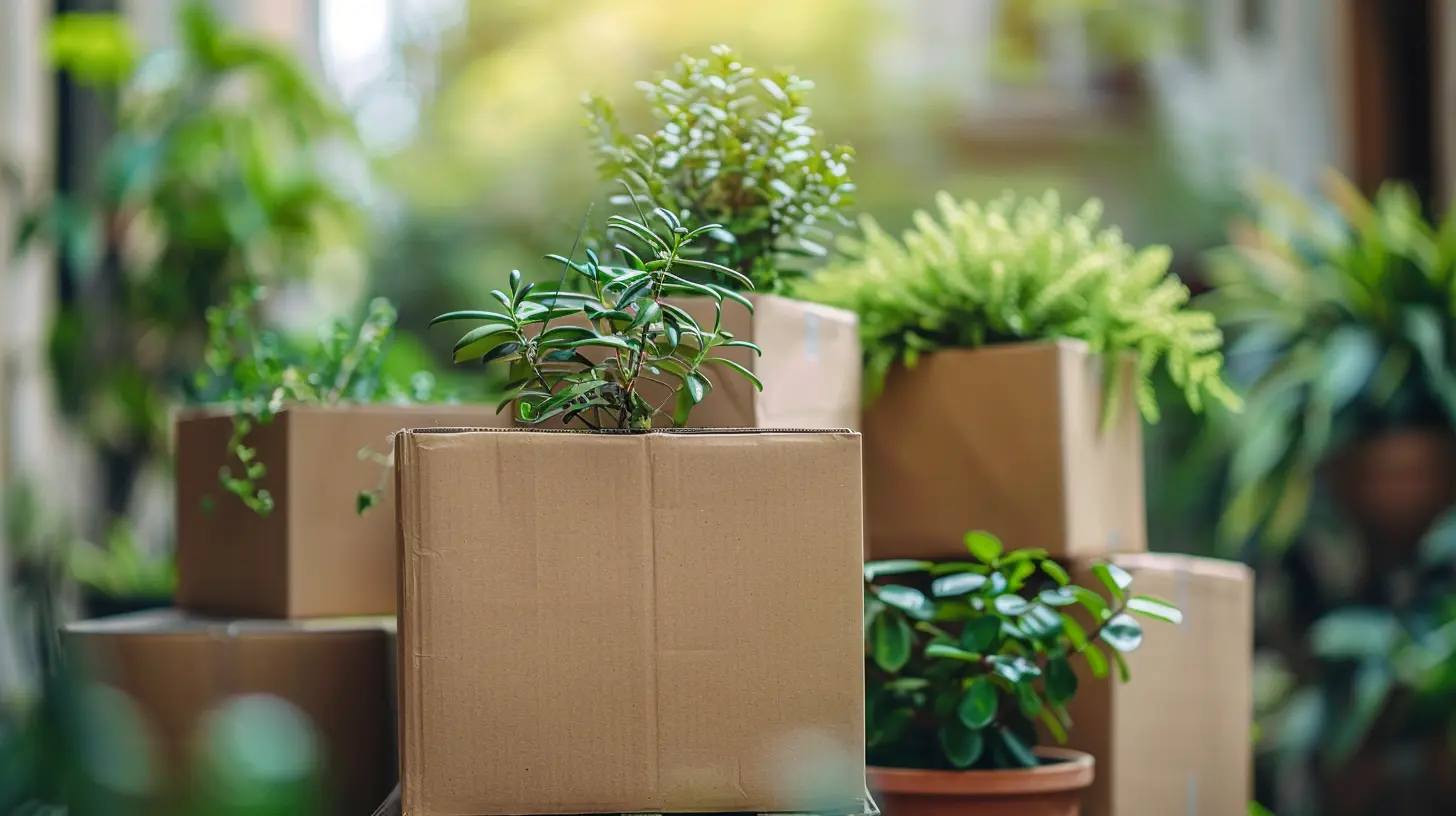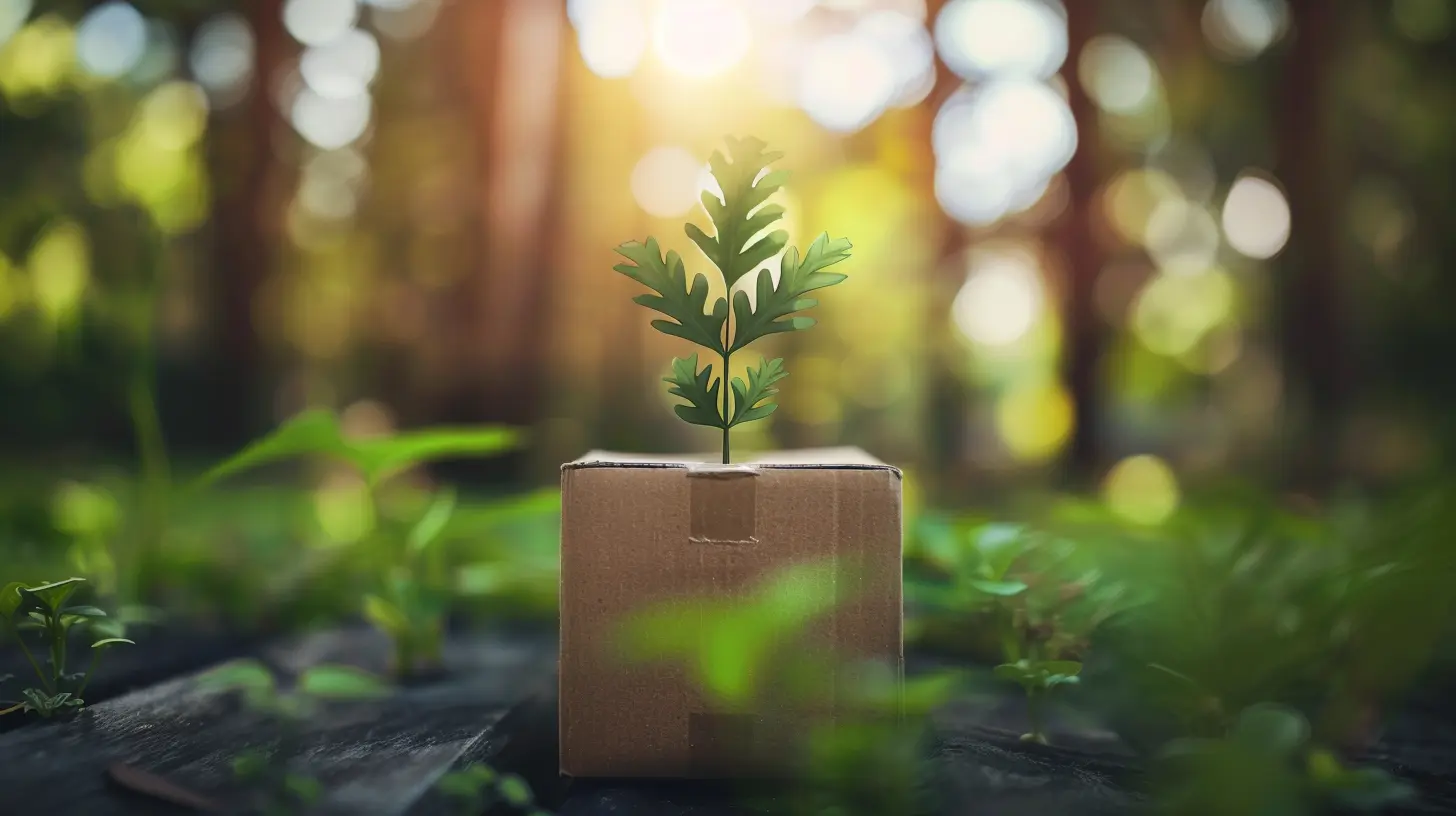Eco-Friendly Moving Tips for a Sustainable Relocation
25 June 2025
Moving to a new home is exciting, right? A fresh start, new opportunities, and maybe even a better view from your window. But let's be real—moving can also be a chaotic, wasteful process that leaves behind a mountain of trash. Cardboard boxes, bubble wrap, plastic tape, and a pile of things you probably don’t need but pack anyway—sound familiar?
The good news? You can move without leaving an environmental mess behind. By planning ahead and making a few conscious choices, you can significantly reduce waste and lower your carbon footprint. So, if you’re gearing up for a move and want to keep things green, here are some eco-friendly moving tips for a sustainable relocation. 
1. Declutter Before You Pack
Before you even think about packing, take a hard look at everything you own. Do you really need that box of old magazines or that sweater you haven’t worn in five years? Probably not. Moving is the perfect time to declutter your home responsibly.How to Declutter Sustainably:
- Donate gently used clothes, furniture, or kitchenware to local charities. Someone else might love what you no longer need.- Sell items through online marketplaces like Facebook Marketplace, Craigslist, or eBay.
- Recycle anything that's beyond repair—check your city’s recycling programs for proper disposal.
- Repurpose old clothes or linens into cleaning rags instead of tossing them.
Less stuff to pack means fewer boxes, fewer trips in the moving truck, and ultimately, a smaller carbon footprint. 
2. Use Eco-Friendly Packing Supplies
Packing materials are often the biggest source of waste during a move. Instead of buying a ton of plastic bubble wrap and disposable boxes, try these sustainable alternatives:Green Packing Options:
- Use what you already have. Towels, blankets, and clothing make excellent padding for fragile items.- Go for reusable plastic bins. Many moving companies offer rental options, which reduces waste.
- Opt for biodegradable packing peanuts instead of Styrofoam, which takes centuries to decompose.
- Ask local stores for leftover boxes. Many grocery and liquor stores have sturdy boxes they’d be happy to give away.
And here’s a bonus tip: avoid plastic tape when possible—try biodegradable packing tape or reuse rubber bands and string to secure boxes. 
3. Choose a Green Moving Company
If you’re hiring movers, why not choose a company that prioritizes sustainability? Some moving companies offer eco-friendly services, such as:- Using biodiesel moving trucks to reduce carbon emissions.
- Offering reusable moving bins rather than cardboard boxes.
- Recycling unwanted items on your behalf.
A quick online search for “eco-friendly moving companies near me” should give you some solid options. 
4. Plan an Efficient Moving Route
If you’re handling the move yourself, plan your route carefully. Too many trips back and forth waste fuel and time. Instead, maximize space in your vehicle and aim for a single-trip relocation whenever possible.If you're moving long-distance, consider freight shipping instead of renting a moving truck. Some freight companies combine shipments, reducing the number of trucks on the road (and the emissions they produce).
5. Avoid Single-Use Plastic
Plastic is convenient, sure, but it’s also one of the biggest culprits when it comes to waste. During your move, try to minimize single-use plastics by:- Using reusable zip ties instead of disposable plastic ones.
- Avoiding plastic storage bags—opt for reusable fabric or silicone versions.
- Skipping disposable cutlery and plates. If you need something temporary, choose compostable options instead.
A little effort goes a long way in keeping unnecessary plastic out of landfills.
6. Keep Cleaning Green
Moving out means cleaning up, but instead of reaching for chemical-laden cleaners, switch to eco-friendly cleaning products. They’re better for the environment and healthier for you.DIY Natural Cleaning Solutions:
- Vinegar + Baking Soda = A powerful cleaner for sinks and tubs.- Lemon Juice = Great for cutting grease and eliminating odors.
- Castile Soap = A gentle, all-purpose cleaner for countertops and floors.
And if you're short on time, many brands now offer biodegradable, plant-based cleaners that work just as well as conventional ones.
7. Pack an Eco-Friendly Essentials Box
No matter how well you plan, unpacking takes time. Instead of relying on takeout (which means plastic utensils and Styrofoam containers), pack a must-have essentials box with:- Reusable water bottles and coffee cups
- A set of real dishes and utensils
- Cloth napkins
- A refillable soap dispenser and natural cleaning cloths
This small step helps you settle in without creating unnecessary waste in your new home.
8. Dispose of Hazardous Materials Properly
Certain items—batteries, paint, old electronics, and cleaning chemicals—shouldn’t just be tossed in the trash. Instead, find a local hazardous waste collection site to safely dispose of these materials.Many cities have designated drop-off centers for e-waste, making it easier to recycle old devices responsibly.
9. Offset Your Carbon Footprint
Despite your best efforts, moving still has an environmental cost. To counteract any unavoidable impact, consider carbon offset programs. Many non-profits allow you to:- Plant trees for every mile you move.
- Donate to renewable energy projects.
- Support carbon-neutral shipping companies if you’re mailing items.
It may not erase your footprint entirely, but it’s a meaningful way to give back to the planet.
10. Set Up a Green Home from Day One
Once you’ve moved in, keep the sustainability momentum going! A few simple changes can help make your new home more eco-friendly:- Unpack responsibly. Recycle boxes, donate excess packing materials, and store reusable supplies for future use.
- Switch to LED lighting. It’s energy-efficient and lasts longer than traditional bulbs.
- Find second-hand furniture. Thrift stores and online marketplaces are great for stylish, sustainable finds.
- Set up a compost bin. Even if you don’t have a garden, small indoor compost bins can reduce food waste.
Sustainable moving doesn’t stop once you arrive—it’s the perfect opportunity to adopt greener habits for the long haul.
Final Thoughts
Moving doesn’t have to be wasteful. With some thoughtful planning, you can relocate with minimal impact on the environment. From decluttering responsibly to using sustainable packing materials and choosing green transportation options, small choices add up to a big difference.So, as you embark on your next adventure, keep these eco-friendly moving tips in mind. Your future home (and the planet) will thank you!
all images in this post were generated using AI tools
Category:
Moving TipsAuthor:

Elsa McLaurin
Discussion
rate this article
2 comments
Rosalyn Barron
Love these tips! Eco-friendly moving makes relocating feel so good!
November 3, 2025 at 5:03 AM

Elsa McLaurin
Thank you! I'm glad you found the tips helpful for a sustainable move!
Oriel McLoughlin
Thank you for sharing these insightful eco-friendly moving tips! I appreciate the emphasis on sustainability in the relocation process. Implementing even a few of these ideas can significantly reduce our environmental impact. Looking forward to more articles that promote green living in real estate!
July 7, 2025 at 11:07 AM

Elsa McLaurin
Thank you for your kind words! I'm glad you found the tips helpful. Stay tuned for more articles on sustainable living!


